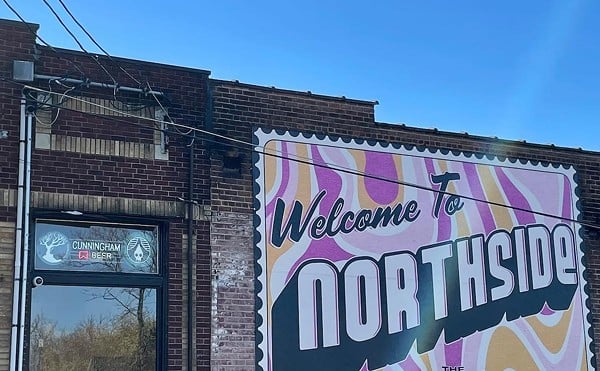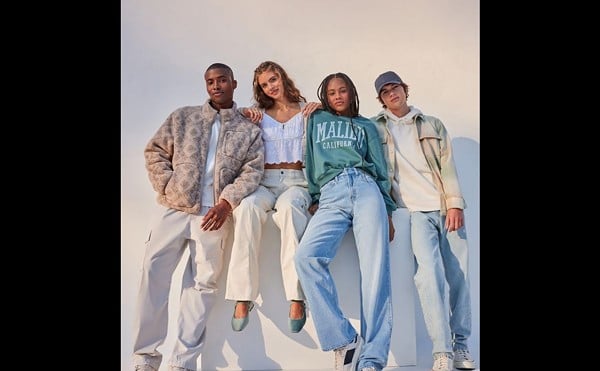|
Sometimes you can tell a Metal singer from his speaking voice. The slow-moving, get-clear baritones of Pantera's Phil Anselmo always made him sound fresh from the gladiatorial arena, with a blade or a bong as his theoretical armament of choice. Ditto for Randy Blythe of Lamb of God.
But then occasionally you get guys like Dani Filth, the corpse-paint-and-spectral-armor-laden singer of British Goth Metal band Cradle of Filth, who, after ruminating at great length in the lofty tones of a BBC correspondent, unnerved me for certain by closing our interview with a spirited "Cheerio!"
Then there's Howard Jones, lead singer and lyricist for the popular Metalcore act Killswitch Engage. With a voice that's refined, modulated and consummately professional, he sounds like the type of guy who, in earlier times in the world of Metal, would have sued Killswitch for corrupting his children.
The most prepossessing thing about Killswitch Engage is their name, which is pretty over-the-top with its "menace to society" vibe (I suppose the diametric opposite would be Snow Patrol). Jones himself is fairly well known for being the rare Metal vocalist that shuns the spotlight, vanishing after a show to seek solitude away from the backstage mob. Jones is somewhat at a loss to explain this paradox.
"It is a little odd," he says.
"I've never been a huge fan of getting around a group of people who tell me how much they love the band. Don't get me wrong, we're completely grateful. I just shy away from that sort of thing. It's peculiar; I don't think I'll ever become accustomed to it."
After balking at the suggestion that he might become a poet, where he could write verse with just a fraction of the attention, the evidence began to point to a variation on the classic Alice Cooper syndrome — that of a normally reserved man who performs noisy exorcisms onstage. The content of his lyrics covers everything from global violence to personal demons, and the idea of expressing himself through music seems to have been innate.
"As a kid, I was generally too broke to buy anything, so I listened to whatever was on the radio and whatever my friends had," Jones says. "The first song that had a real impact on me was 'Let It Be' by The Beatles, because it was so melancholy. It got a certain mood out of me. My friends mostly listened to Hip Hop and R&B, and I listened to all of that stuff, too, but I always went a different route, getting into AC/DC and KISS, and then one friend turned me on to bands like Obituary and Carcass."
After performing in several other bands, Jones joined Killswitch in 2002 and has recorded two albums with the band thus far, 2004's The End of Heartache and its latest effort, As Daylight Dies, released last November. By many accounts, Jones was the ideal component to further hone Killswitch's established sound, credited with bringing about a "new wave of American Metal."
Reading the various press reports detailing Killswitch's originality and legion of imitators is a little puzzling. The common denominator seems to be Jones' oscillation between clean singing and dry-heave Death Metal vocals (frequently referred to as "melodic" Metalcore), even though bands like Fear Factory were doing it in the mid-1990s, not to mention contemporaries like As I Lay Dying and All That Remains.
The contrast in Killswitch's music may be sharper than most, doing abrupt 180s from punishing, pounding rhythms to interludes of agonized, melodic wailing, where Jones at times sounds almost like the other Howard Jones, the Adult Contemporary 1980s hit-maker. (Jones himself once self-deprecatingly referred to these sections as the "big, gay lyrics.") Apparently, this is the trait responsible for winning over many non-Metal fans while simultaneously alienating some purists.
"We've been a gateway band for heavier bands," Jones says. "I've had people come up to us who said we were the first Metal band they listened to and then they got into Black Dahlia Murder or somebody like that. There was always a song or two where I would just sing; it's something I've always done. Then others would come up and say, 'I like you guys but some of the Emo stuff ...,' and it's like, 'Oh, man, you don't have any idea what that phrase means, do you?' "
Aside from performing, writing and representing for fans and commentators, Jones keeps himself pretty busy in other ways as well. Aside from Killswitch, he manages a group of bands, including Dayton's own Twelve Tribes.
"I'm from Columbus and I've known the (Tribes) singer since he was a kid," he says. "Great bunch of guys. You could lump them into Metalcore, but nobody sounds like them."
Other members of Killswitch are involved with side projects as well, so much so as to fuel rumors that extracurricular activities will actually lead to the band's dissolution. For his own part, Jones attributes it to the ennui of touring.
"I've managed a lot of bands, but had to scale it back because of the intense touring schedule; there were some hefty overseas phone bills," he says. "But you spend so much time waiting — waiting for your turn to play, then back on the bus to wait some more. You can only play so many video games and watch so many movies."
Just as he denies Killswitch's status as a groundbreaker, Jones also claims partial ignorance regarding the numerous bands that have reportedly followed their example.
"We borrowed from the more melodic Swedish bands, then drifted away from that and started doing our own thing," he says. "I'm sure there are bands taking a pinch from us, I just don't know who they are. There are better bands to borrow from, like Iron Maiden, Judas Priest and old Metallica."
KILLSWITCH ENGAGE is one of the headlining bands on this year's Warped Tour, which hits Riverbend on Aug. 1.





